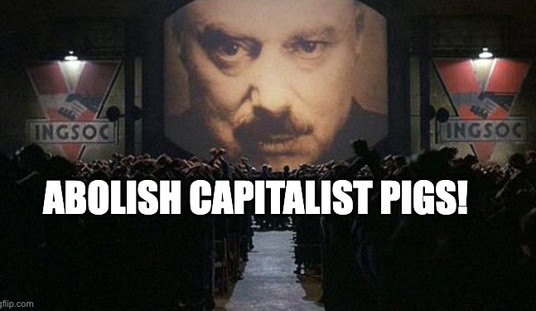You may recall that last month Tina blew the whistle on some really shabby reporting coming from the New York Times on the potential of natural gas production – particularly the emerging technology for shale gas. They raised suspicions about it being anything from an unwise investment to a “Ponzi scheme.” The inherent bias in the article was nothing short of staggering.
But if the sloppy reporting looked bad up front, the Gray Lady’s own public editor, Arthur Brisbane, has been keeping up with the investigation and found that their source material was anything but solid. He digs into a follow-up piece along the same lines which relied almost entirely on heavily redacted e-mails from inside the Energy Information Association, supposedly treated with such a rough hand to protect the identity of the whistle-blower. What he finds will likely not come as much of a surprise to long time readers.
The e-mails, quoted extensively in the article and published in a document “viewer” on nytimes.com, captured conversations between summer 2009 and April 2011. The Times redacted all the names, substantial sections of the e-mails and even whole e-mails.
The doubts highlighted in the e-mails left a cloud over the E.I.A., which policymakers rely on for information. E.I.A.’s acting administrator, Howard K. Gruenspecht, called before the Senate Energy and Natural Resources committee, said the e-mails were “largely to and from a person who was hired by E.I.A. in 2009 as an intern and later developed into an entry-level position.”
“The e-mails as posted on The Times Web site were heavily redacted and redacted in ways that I think provide misleading information on their context,” Mr. Gruenspecht added.
My assistant, Joseph Burgess, obtained unredacted copies of the e-mails from Republican energy committee staff. A comparison of the versions reveals some of the classic problems associated with anonymous sourcing.
The phrase “classic problems with anonymous sourcing” is putting it kindly to say the least. Not only was their chief “witness” somebody who was only serving as an intern when this kicked off, but he was quoted multiple times with a variety of titles in the article. Let’s see… to date the Public Editor has found that this intern was cited as being:
- an “official”
- an “energy analyst”
- a “federal analyst”
- a “senior adviser”
- a “senior official”
Not once, as the author points out, was this individual ever identified as, “an intern.” Not to mention asking whether or not this individual might have their own agenda regarding domestic energy development.
So, a tip of the hat to the Times’ Public Editor for uncovering this mess, but also a big old raspberry to the Gray Lady for running such a shoddy, improperly sourced, steaming pile in the first place. A poor show, boys and girls.








Join the conversation as a VIP Member